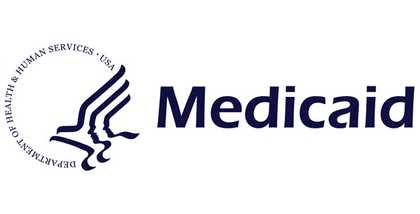Recognizing the signs you need a dentist ASAP is essential for preserving your oral health.









$149 New Patient Special!*
Includes comprehensive exam, full mouth x-rays and a cleaning for new patients without insurance.
Recognizing the signs you need a dentist ASAP is essential for preserving your oral health. If you’re experiencing urgent tooth discomfort or unusual symptoms, it might be an indication that you need to see a dentist immediately. Ignoring these warning signs can lead to more severe issues in the future. In this article, we will cover common indicators that should prompt you to make an appointment without delay. From persistent toothaches to unexpected sensitivity, being aware of these signs will help you take proactive steps towards a healthier smile. Continue reading to discover the symptoms of dental emergencies in-office that should never be ignored.
1. Persistent Toothache
A persistent toothache can be one of the most unsettling urgent tooth issues, often indicating an underlying problem that needs immediate attention. The usual causes of a persistent toothache include tooth decay, gum disease, an abscessed tooth, or even a cracked tooth. These conditions can inflame or irritate the nerves in your teeth, resulting in continuous, pulsating pain that might spread to other areas of your mouth or head.
It’s important to seek immediate care if your toothache lasts more than a day, is accompanied by swelling, fever, or difficulty swallowing, or if the pain becomes increasingly severe. Delaying treatment can lead to more serious complications, such as the spread of infection or tooth loss. During dental emergencies in-office can help and timely intervention is crucial.
While waiting for your dental appointment, you can try some home remedies to temporarily alleviate the pain. Over-the-counter pain relievers, like ibuprofen or acetaminophen, can help reduce discomfort. Applying a cold compress to the outside of your cheek can also provide relief by numbing the area and reducing swelling. Additionally, rinsing your mouth with warm salt water may help cleanse the area and ease inflammation.
2. Significant Swelling
Swelling in the mouth and face can be alarming and is a sign you need a dentist ASAP. It often indicates an underlying issue that requires immediate attention from a dental professional. Understanding the nature of this swelling is crucial; it can manifest as localized puffiness around a tooth, gums, or even the entire jaw and face. This could result from infection, injury, or other dental problems.
There are several potential causes of swelling in the oral region. A common cause is an abscessed tooth, where a bacterial infection has led to pus accumulation, causing significant inflammation. Gum disease can also result in swelling, as the gums become infected and swollen due to plaque buildup. In some cases, an allergic reaction to certain foods, dental materials, or medications can cause rapid swelling, making it critical to identify the source.
The importance of prompt evaluation by a dentist cannot be overstated. Swelling often signifies that something is wrong, and delaying treatment can lead to further complications, such as the spread of infection or tooth loss. A qualified dentist will assess the situation, provide a diagnosis, and recommend necessary treatment to alleviate the swelling and address the underlying cause. If you notice significant swelling in your mouth or face, don’t hesitate to contact a dental professional for a thorough evaluation.
3. Unexpected Tooth Sensitivity
Unexpected tooth sensitivity can be alarming and is often triggered by various factors. Common triggers include hot or cold beverages, sweet or acidic foods, and even breathing in cold air. If you find yourself wincing at the slightest touch or temperature change, it may be a sign you need a dentist ASAP.
While occasional sensitivity can be normal, persistent or severe sensitivity may indicate a more serious issue. This could be due to enamel erosion, a cracked tooth, or gum disease. If the sensitivity is accompanied by pain, swelling, or visible damage to the tooth, it is crucial to seek dental attention as soon as possible.
Several treatments are recommended for tooth sensitivity. Over-the-counter desensitizing toothpaste can help block the pain signals sent to your nerves. If the problem persists, your dentist may suggest professional treatments such as fluoride varnishes or dental sealants to strengthen the enamel. In some cases, more extensive procedures like root canals may be necessary to address underlying issues. Remember, if you experience unexpected tooth sensitivity, don’t hesitate to reach out to a dental professional for a thorough evaluation and appropriate treatment options during dental emergencies in office.
4. Unexplained Bleeding Gums
Unexplained bleeding gums can be a sign of underlying dental issues that require immediate attention. Gingivitis, an early stage of gum disease often triggered by plaque buildup, is one of the most common causes of gum bleeding. Other potential causes include vitamin deficiencies, hormonal changes, certain medications, and systemic conditions such as diabetes or blood disorders. If you notice your gums bleeding without an obvious cause, it’s essential not to dismiss this symptom as it may be a sign you need a dentist ASAP.
It’s important to understand that gum health is intricately linked to overall health. Research has shown that poor gum health can contribute to serious health conditions, including heart disease, stroke, and respiratory problems. Therefore, maintaining healthy gums is not just about a beautiful smile; it’s crucial for your overall well-being.
If you experience unexplained bleeding gums, take these essential steps: maintain a consistent oral hygiene routine by brushing twice a day and flossing daily to remove plaque and food particles. Consider using an antiseptic mouthwash to help reduce bacteria in the mouth. Schedule an appointment with your dentist as soon as possible for a thorough examination and professional cleaning. Don’t wait; your health depends on it!









